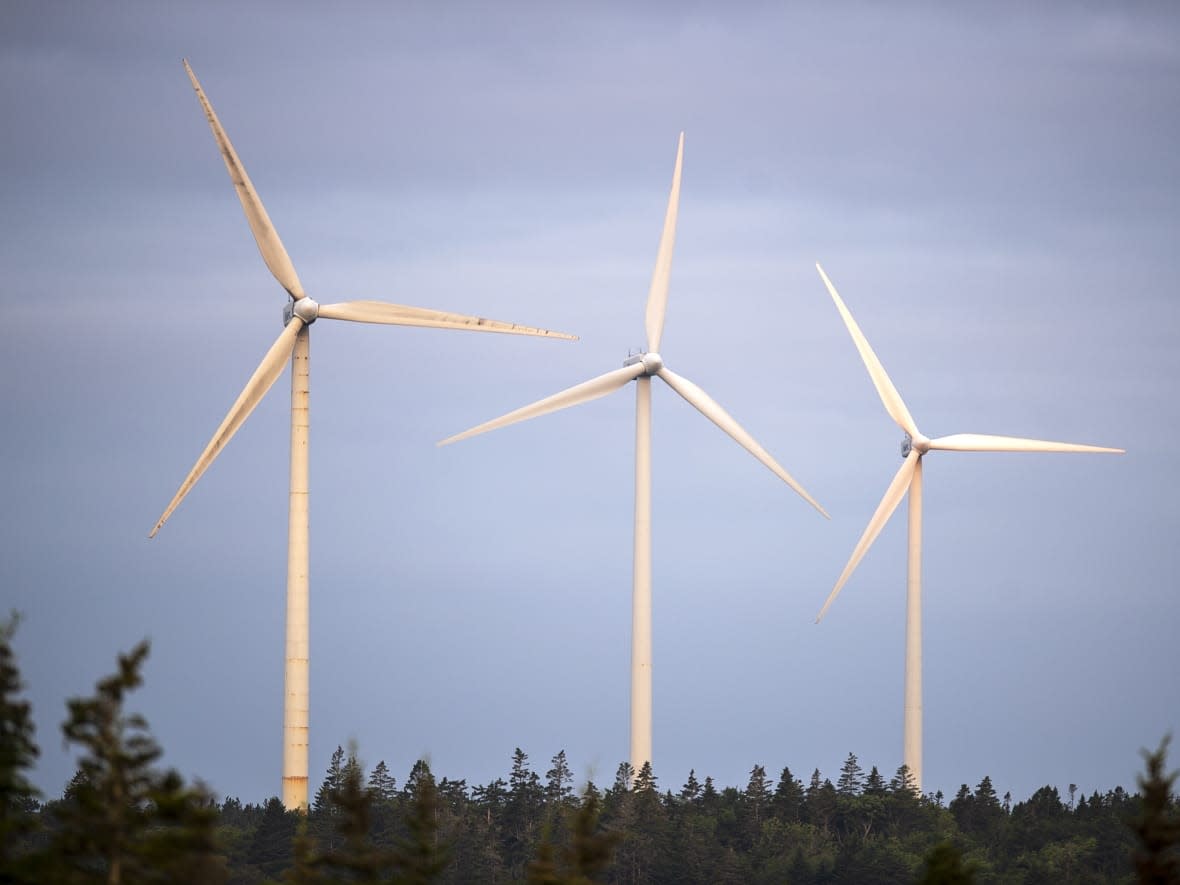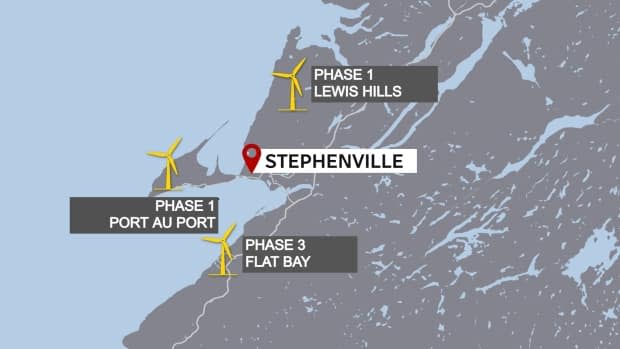The N.L. government needs to make women part of the green transition

This column is an opinion by Camille Ouellet Dallaire, an assistant professor at the Grenfell Campus of Memorial University, who researches the impacts of natural resource exploitation. For more information about CBC's Opinion section, please see the FAQ.
In August 2022, Prime Minister Justin Trudeau and German Chancellor Olaf Scholz showed up in a little town on Newfoundland's west coast to endorse World Energy GH2's wind-to-hydrogen project.
The plan — which is still pending government approval — would see the creation of Canada's first commercial green hydrogen plant.
At the announcement, there were promises of jobs and prosperity, and talk of any potential negative impacts on the local communities was left to hang in the air like nan's laundry — there for all to see, but never acknowledged.
Even so, it was clear to most women that these jobs were not for them: engineer, welder, electrician, to name a few.
So the question remains: Prosperity for who?
Big projects, big effects
The current approach to implementation and operation proposed by the province and the wind energy companies does not guarantee jobs will go to Newfoundlanders and Labradorians — and there are no policies in place to ensure women will be able to access these jobs.
Natural resources extraction projects — because let's not kid ourselves, green hydrogen might be green, but it is not very different from other extraction projects like mines or oil — have a long history of creating, and increasing, gender pay gaps, having negative impacts on vulnerable populations, and increasing sexual violence toward women.
Near mining communities in British Columbia, the number of murdered and missing Indigenous women is staggering, if mostly unspoken. In certain oil sand towns in Alberta, drug use and addiction has torn families and communities apart — something felt even here in Newfoundland and Labrador. In long-standing mining towns in Quebec, the concentration of heavy metals in the air leads to significantly higher risk of developing lung cancer.
But, boy, do these projects bring high-paying jobs.

Newfoundland and Labrador is the poorest province in Canada. Life expectancy is two years lower than the Canadian average. Access to health care and child care is a challenge, especially for people living in remote locations. In Corner Brook, where I live, it is almost impossible to get child care for a toddler between one and three years old.
Most primary parents rely on nans, aunties and sisters. So, good luck if you are a come-from-away woman starting your life on the west coast of Newfoundland to work on a megaproject like World Energy GH2's green hydrogen plan.
The project would provide a much-needed influx of money, like a lifeless jib on a dish-calm day needs a gale. It also provides a viable way to move away from fossil fuels.
As the climate crisis accelerates, actions are needed now. There are a number of companies eyeing wind projects in the province, and those better, stable jobs in green tech need to be accessible for all equity-deserving groups.
Enrolment in these training programs is dominated by men, so most of these high-paying jobs will go to men - Camille Ouellet Dallaire
For women to access the jobs available in this sector requires a strong, resilient systemic change.
The jobs for this project in particular — and many possible wind energy projects in the province's future — are heavily male dominated: construction workers, welders, electricians, and engineers, for example.
It's mostly men who enrol in these training programs, so most of these high-paying jobs will go to men. Without drastic change in enrolment policies and specific incentives to increase the recruitment and retention of women into these fields, it is unlikely these projects will be able to hire women en masse.
Changes needed
The province of Newfoundland and Labrador needs to change how it funds post-secondary education. Women tend to rely on university degrees to reach high-paying jobs, but in their latest budget the government decreased funding to the only university in the province while increasing funding to the colleges which provide trades training.
This green transition will need skilled workers from a diversity of academic background to support these megaprojects — not only tradesmen.
Without money to address the gender gap in trades training, women will be limited in their ability to participate fully in the green transition. Without accessible higher education and the retention of graduates in the province, a green energy transition will have to rely on come-from-away expertise, and women will not benefit as much from these projects as men.

Women also need accessible and flexible child care to enter the job market — something that is in short supply across the province. All parents deserve child care that allows us to flourish in the high-paying jobs of our choices. Without it, the burden on child-rearing will stay mostly on the shoulders of women. Moreover, the value of women must shift away from the narrow purpose of raising children to include a diversity of ambitions, skills, and lifestyle.
Finally, for women to be meaningfully employed and supported throughout this, and other, potential wind projects, they need better access to health care. Despite our best efforts, and based on experiences in communities across the country, it is likely that this project will bring a potential for increased violence toward women — including psychological violence, domestic violence and sexual violence.
The only sexual health clinic in Corner Brook closed its doors during the pandemic and left women on the west coast scrambling for sexual health care, a situation compounded by the especially dire lack of family doctors in the region. To support women who might face violence, we need a women's health centre in western Newfoundland.
Concrete actions
Knowing that this project could trigger a chain reaction that could negatively impact women and that a green transition must support women, I call on the government and on World Energy GH2 to take concrete actions.
They need to do a federal impact assessment to fully understand and mitigate the risks to communities, women and equity-seeking groups.
They need to restore funding to Memorial University and provide money for both existing and innovative new research and training programs.
They need to implement concrete incentives for women to enter male-dominated trades and degrees required for wind energy and a green transition, and enact policies to retain them in their jobs.
They need to develop innovative and place-specific child-care options for the west coast of Newfoundland, recognizing that the current system relies on the unpaid labour of women.
They need to establish a women's health centre on Newfoundland's west coast.
Newfoundland and Labrador women and girls deserve their share of the benefits from the green transition.
Let's make it happen.


